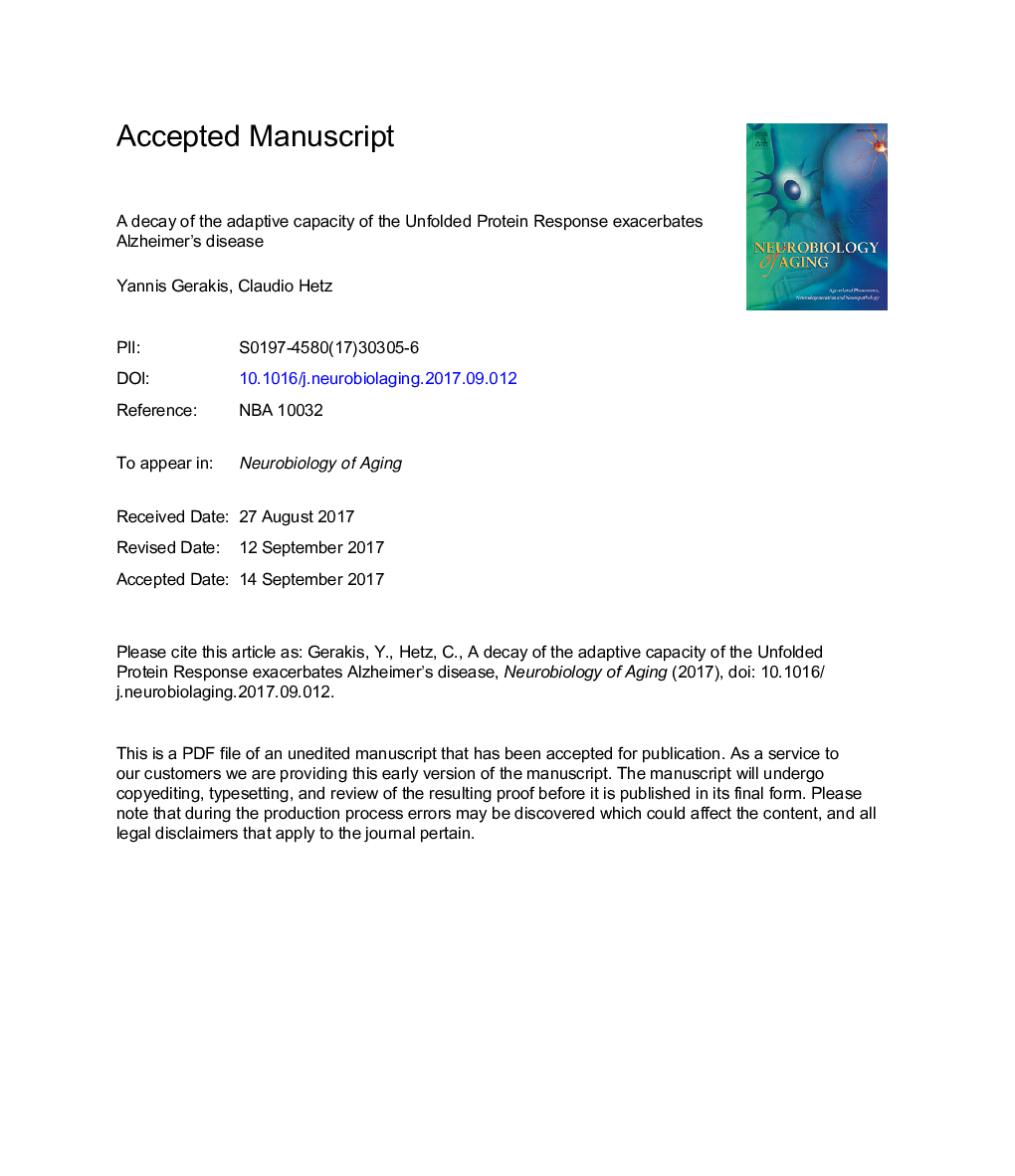| کد مقاله | کد نشریه | سال انتشار | مقاله انگلیسی | نسخه تمام متن |
|---|---|---|---|---|
| 6803086 | 1433521 | 2018 | 10 صفحه PDF | دانلود رایگان |
عنوان انگلیسی مقاله ISI
A decay of the adaptive capacity of the unfolded protein response exacerbates Alzheimer's disease
ترجمه فارسی عنوان
انقباض ظرفیت انطباق پروتئین باز نشده باعث افزایش بیماری آلزایمر می شود
دانلود مقاله + سفارش ترجمه
دانلود مقاله ISI انگلیسی
رایگان برای ایرانیان
کلمات کلیدی
موضوعات مرتبط
علوم زیستی و بیوفناوری
بیوشیمی، ژنتیک و زیست شناسی مولکولی
سالمندی
چکیده انگلیسی
Alterations in the buffering capacity of the proteostasis network are a salient feature of Alzheimer's disease, associated with the occurrence of chronic endoplasmic reticulum (ER) stress. To cope with ER stress, cells activate the unfolded protein response (UPR), a signal transduction pathway that enforces adaptive programs through the induction of transcription factors such as X-box binding protein 1 (XBP1). A new study by Marcora et al used a fly model to study amyloid β pathogenesis in the secretory pathway of neurons. Through genetic manipulation, authors identified a new role of XBP1s in the clearance of amyloid β and the improvement of neuronal function. However, although the activation of the UPR signaling was sustained over time, the transcriptional upregulation of XBP1-target genes was attenuated during aging. This study suggests that aging has a negative impact in the ability of the UPR to manage proteostasis alterations in Alzheimer's disease.
ناشر
Database: Elsevier - ScienceDirect (ساینس دایرکت)
Journal: Neurobiology of Aging - Volume 63, March 2018, Pages 162-164
Journal: Neurobiology of Aging - Volume 63, March 2018, Pages 162-164
نویسندگان
Yannis Gerakis, Claudio Hetz,
